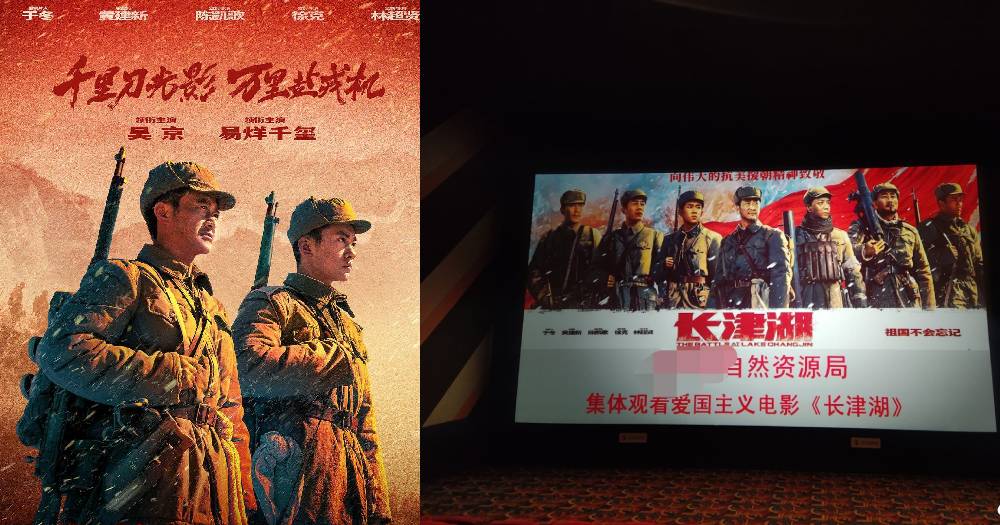Follow us on Telegram for the latest updates: https://t.me/mothershipsg
"The Battle at Lake Changjin" -- a Chinese war film about Chinese troops defeating the U.S. Army, has topped the box office in China, beating the new James Bond film "No Time to Die", the New York Post (NYP) reported.
According to The Hollywood Reporter, the movie has raked in US$768.8 million (S$1.03 billion) in China, with forecasts suggesting that the total gross could hit US$843 million (S$1.13 billion), which would make it the second biggest movie of all time in China.
The three-hour-long war film is reportedly on track to overtake another war film, "Wolf Warrior 2", which currently sits second on the all-time box office list with earnings of US$854 million (S$1.15 billion).
Commissioned by the Chinese government
Based on the historical "Battle of the Chosin Reservoir", the film depicts a brutal 17-day battle fought during the Korean War, which saw 120,000 Chinese troops encircling and attacking the U.S. military, eventually forcing the U.S. to evacuate from the area, according to the NYP.
The film was commissioned by the Chinese government and was released on China's national day (Oct. 1), while the Chinese Communist Party recently celebrated its 100th anniversary, the BBC reported.
With a budget of just US$200 million (S$268.8 million), the movie was directed by three celebrated film-makers -- Chen Kaige, Tsui Hark, and Dante Lam, and featured nationalist film regular Wu Jing as one of the lead actors.
GT: audiences "deeply moved"
According to Chinese state-controlled media Global Times (GT), audiences were "deeply moved" by the movie and proceeded to pay tribute to Chinese soldiers who made sacrifices during the Korean War.
GT also labelled the war as "the War to Resist U.S. Aggression and Aid Korea".
Chinese netizens took to Weibo to express that they were "touched" by the film, while some commenters said they were moved to tears while watching the film.
Footage of army veterans singing a military anthem before the screening of the film was also circulated on the Chinese social media site.
Some negative reactions
Meanwhile, former journalist Luo Changping was detained after writing a critical review of the nationalistic film's production quality and relevance to history, DW News reported.
"Half a century later, the people of China barely reflected on the justification of the war, just as how the regimen did not question the 'wise decision' made by the higher ups", he reportedly wrote on Weibo.
DW News speculated that Luo might have insulted the soldiers that fought in the war with a play on words, mentioning the regimen as "Sha Diao" instead of "Bing Diao". "Bing Diao" (Ice Eagle) was reportedly used to describe the soldiers' bravery and sacrifice in the cold weather, while "Sha Diao" is an internet slang used to describe stupid people.
Despite the movie's immense popularity, there were some critics.
GT also reported that an influencer on Weibo was suspended after saying the patriotic movie was as if China was making "a threat to the world".
"I didn't expect the result of three big directors collaborating would turn out to be thrice as sh*tty," another netizen commented.
Follow and listen to our podcast here
Top image via Weibo
If you like what you read, follow us on Facebook, Instagram, Twitter and Telegram to get the latest updates.
